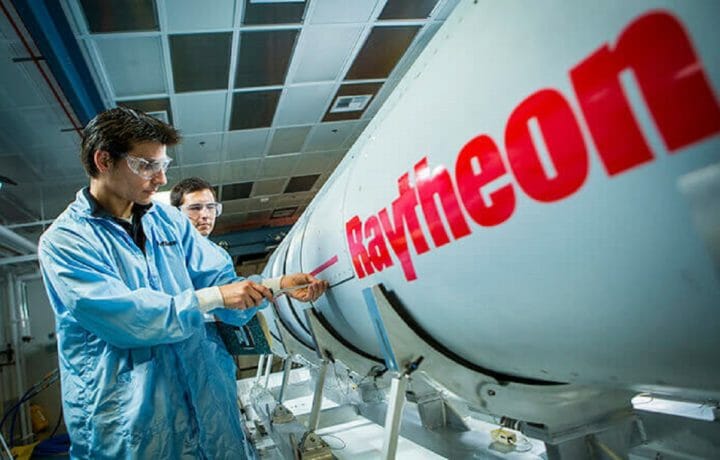When it comes to hiring, it may seem like the only organization making the headlines is Amazon. While it’s true that Amazon is on a holiday hiring spree, cleared recruitment is still happening, whether or not it’s splattered across all of the news. Recruiters are still finding cleared candidates – either online or at cleared hiring events. With contracts still being awarded and the national security work marching forward, the defense industry remains poised to respond to national security needs. Sometimes, efficiency drives dreaded re-orgs and layoffs, but sometimes that means ramping up the hiring and finding cleared talent.
Layoffs Impacting the Defense Industry
| IBM | In advance of a split into two companies, IBM is reducing jobs across Europe with layoff numbers reported around 10,000. “We’re taking structural actions to simplify and streamline our business,” said IBM Chief Financial Officer James Kavanaugh during the company’s third-quarter earnings call in October, according to a Seeking Alpha transcript. “We expect the fourth-quarter charge to our operating results of about $2.3 billion.” |
|---|
The COVID-19 pandemic has shaken the normal way of operating up, but it has also exposed weaknesses. The military has used the lessons learned in the pandemic to identify cybersecurity vulnerabilities and up the ante on cyber training. All defense contractors have been at work upping their cybersecurity game with the CMMC Interim Rule going into effect today.
“It’s forcing … the military to really accelerate focuses on technology and push forward a number of things that otherwise might have been delayed for traditional contracting reasons,” Dani Charles, a fellow with the New America think tank’s cybersecurity initiative said.
While the year has had its challenges, it has also helped the national security field to grow in its work from home capabilities, as well as, strengthen cybersecurity weaknesses. It’s also made the CMMC implementation more of a need to have, rather than a nice to have.
“If we can be in a situation where we can leverage talent anywhere inside the United States and allow them to work within an enterprise that is both secure, but also reliable and fast and functioning … then I think that’s an advancement that really lends itself to a much more agile force,” Charles said.
Hiring impacting the Defense Industry
| Raytheon | While Raytheon has been cutting jobs at Pratt & Whitney and Collins Aerospace this past year in efforts to reduce costs, the move to NC for Pratt & Whitney is projected to not only cut costs for the organization, but it will also add hundreds of jobs. The company has plans to employ 800 people. Large organizational moves like Pratt & Whitney’s have the tendency to attract other companies to join them in the area, building up a bit of a hub, which is what we’re seeing with the southeast steadily becoming an aerospace and defense hub. With reduced overhead costs and friendlier state policies for businesses, the southeast is attracting many organizations to set up shop in new locations. Pratt & Whitney estimate a $175 million cost savings with the move away from CT to NC.
“These types of projects are valuable above and beyond Pratt & Whitney because of their ability to attract vendors and suppliers,” said John Boyd, a New Jersey-based consultant who has advised manufacturers, including Pratt & Whitney and Boeing, on relocations and expansions. “This expansion in Asheville is significant — it underscores that the center of gravity for the aerospace industry today is the Southeast,” Boyd said, citing heavy aerospace hitters located in the South, including Airbus, which has a plant in Alabama, Gulfstream in Savannah, Georgia; Boeing and Lockheed in South Carolina and the aerospace cluster in Florida. “A common denominator in these states in the South attracting these industries is their ‘right to work’ status, low business costs, incentives and workforce training program.” |
|---|
Opportunity to Watch
The Army is on the hunt for emerging leaders in the technology field, and the service thinks that data analytics is the ticket to finding the talent. The Army will begin accepting proposals December 8 under their Small Business Innovation Research (SIBR) program, which will be looking to small businesses for “solutions leveraging data science and/or machine learning techniques that will revolutionize how the Army recruits, develops, selects, and distributes talent across the force.” The goal of the program is to bridge the gap between having strong leaders and strong technical talent. In order to find leaders with the right skills that combine technical understanding or expertise with strong leadership tendencies, the Army is looking to machine learning to help them identify these unique individuals. The tool will help the Army to narrow in on individuals with specific skills, identify recruitment strategies for particular talent, make unbiased comparisons and assessments, as well as find ways to develop skill deficiencies and predict ways to optimize civilian, military and contractor talent across the force.



